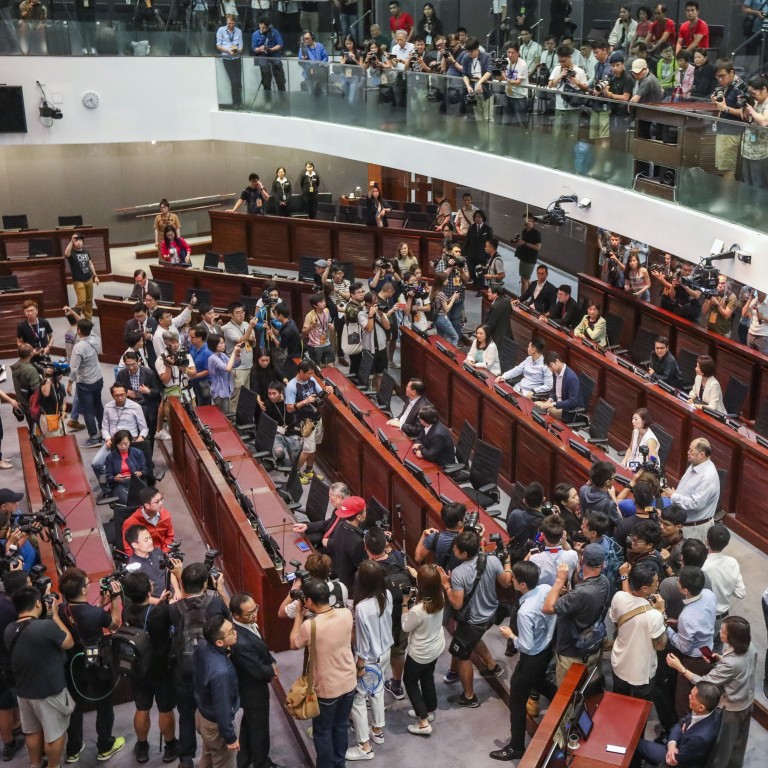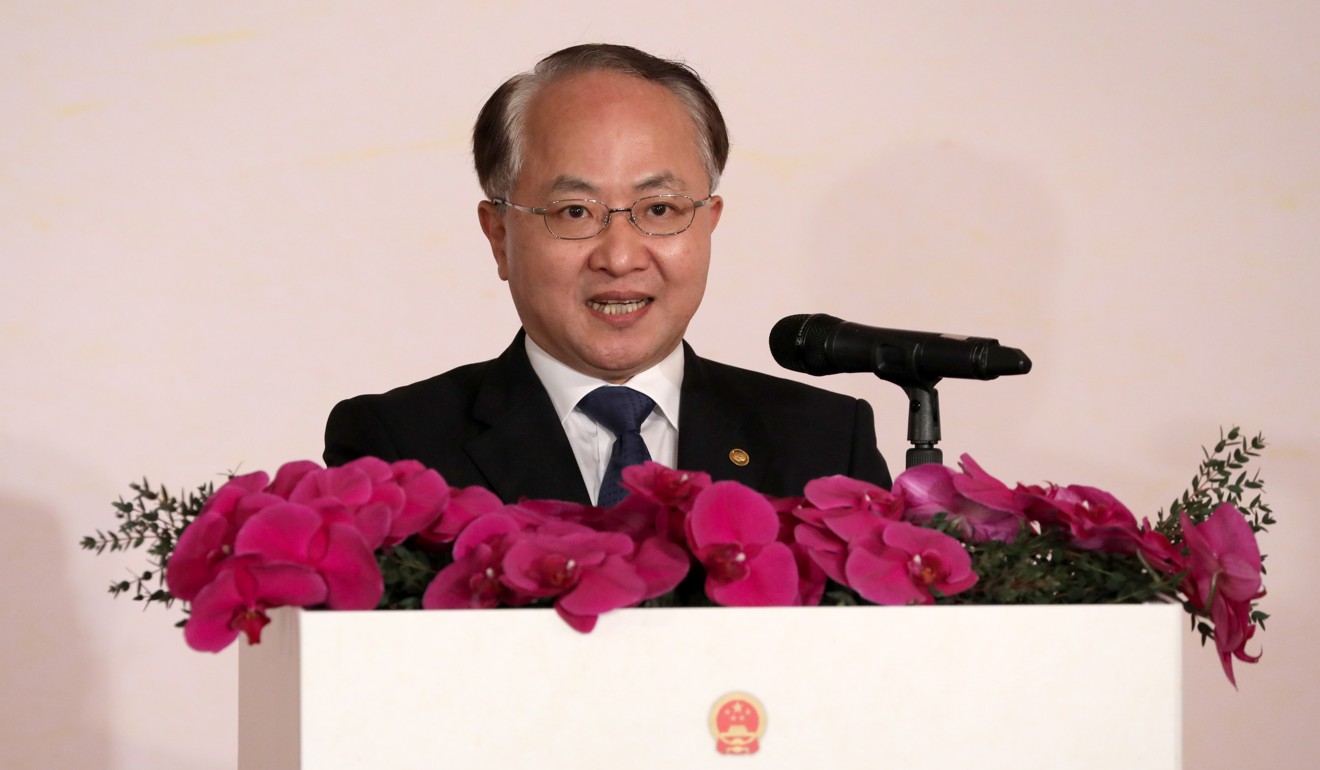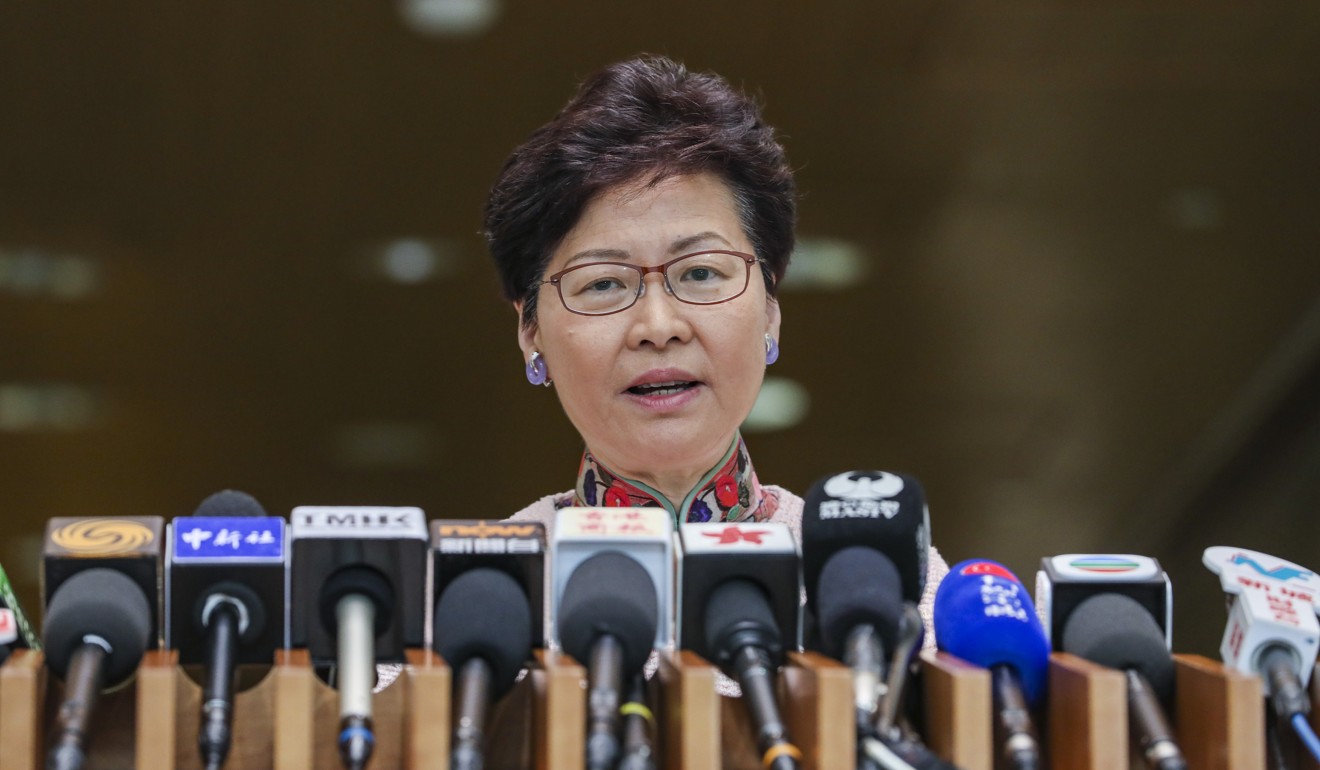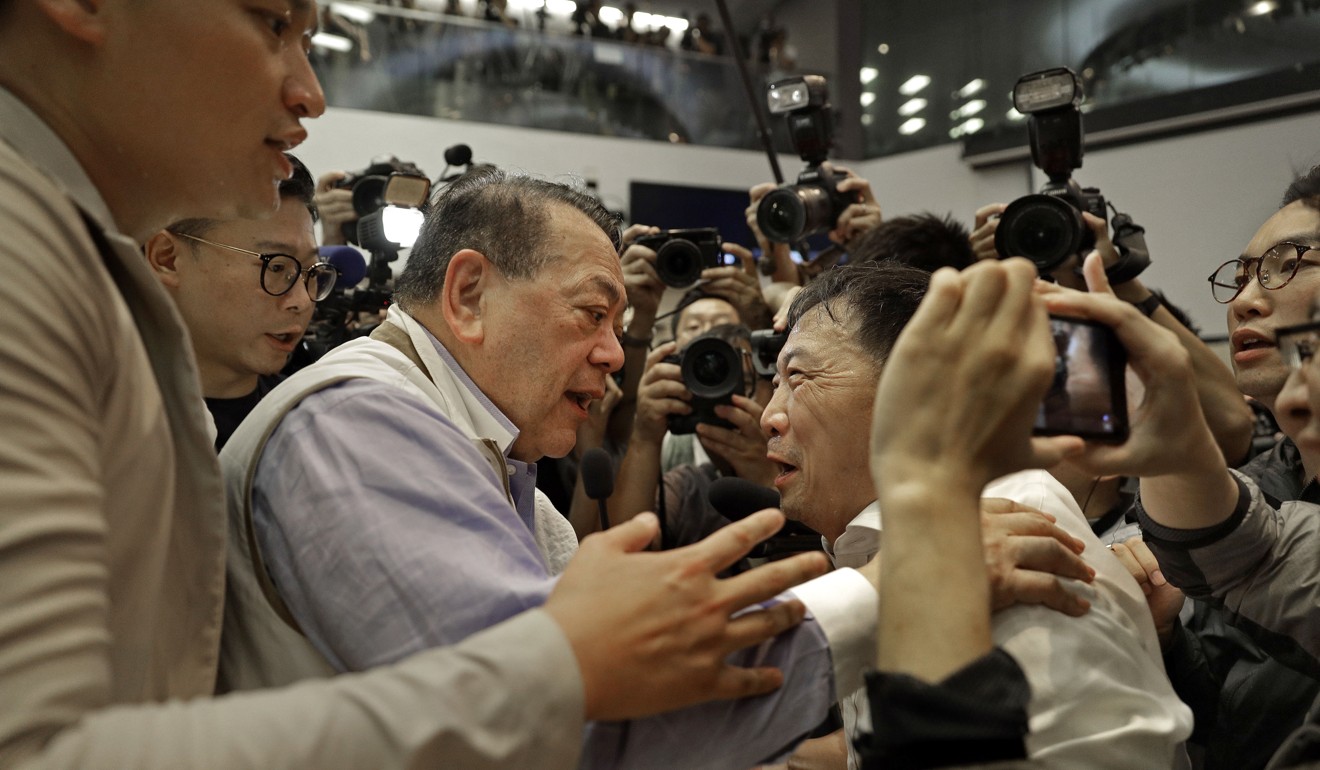
Beijing’s top man in Hong Kong lashes out at international critics of contentious extradition bill and vows to ‘take them on all the way’
- Beijing’s liaison office director Wang Zhimin categorically rules out any alternative or amendment to the bill
- Wang singles out US Consul General Kurt Tong and Secretary of State Mike Pompeo and accuses Western powers of ganging up on China
Beijing’s top representative in Hong Kong has launched an unprecedented broadside at international critics of the city’s controversial extradition bill, accusing them of ganging up against China and vowing to “take them on all the way” to protect the country’s sovereignty.
Several sources said Wang Zhimin, director of Beijing’s liaison office in the city, was defiant and combative over the issue in a two-hour meeting on Friday with more than 250 local loyalists, mostly deputies to the National People’s Congress (NPC) and the Chinese People’s Political Consultative Conference (CPPCC).
The sources said Wang categorically ruled out any alternative or amendment to the contentious bill, which would allow the transfer of suspects to jurisdictions with which the city does not have an extradition deal – including mainland China, which is the main bone of contention for those who fear the new legislation will be used to victimise Beijing’s critics in Hong Kong.
Counter proposals such as putting suspects wanted overseas on trial in the city only, expanding Hong Kong’s judicial power and shelving the bill altogether were not feasible, Wang insisted.

The sources cited him as stressing that if China could not put its own citizens on trial within its own borders, it would be tantamount to granting Hong Kong extraterritoriality.
Wang also listed out the Western government representatives, both in the city and overseas, who had criticised the bill, singling out US Consul General Kurt Tong and Secretary of State Mike Pompeo who met opposition figures from Hong Kong on Thursday and warned the rule of law was under threat.
According to the sources, Wang accused Western powers of ganging up against China, along with local opposition politicians, and warned that if they were intent on continuing their attacks, Beijing was prepared to “take them on all the way” to the end.
He was cited as pouring scorn on those who were trying to use the US-Hong Kong Policy Act – under which the city is treated differently from the rest of China – as a bargaining chip.
He linked the US government’s stance with the tussle between Beijing and Washington in the broader context of their trade war.
How did we get into this extradition mess and what happens next?
The sources said Wang also accused opposition politicians of using the bill to destroy the unity of their pro-establishment rivals, as he urged the delegates to support the passage of the bill in the Legislative Council, which is currently deadlocked over how to start scrutinising it formally.
Earlier, Chinese foreign ministry spokesman Lu Kang urged Washington to respect the Hong Kong government’s legislative work.
“It is wrong to interfere with Hong Kong affairs through any means, and it is unpopular and futile to try to take advantage of the situation and create chaos in Hong Kong,” he said.

Opposition to the bill has triggered unprecedented clashes in Legco, and is posing the worst political crisis for Chief Executive Carrie Lam Cheng Yuet-ngor who has characterised it as a threat to her credibility and ability to govern.
After the meeting at the liaison office, Tam Yiu-chung, Hong Kong’s sole delegate to China’s top legislative body, said Wang had urged them to fight back publicly against “many misleading and inciting rumours” about the bill.
“Wang told us to believe in four things – ourselves, the Hong Kong government; the local courts and the rule of law,” he said.
Wang’s office is mobilising a massive publicity campaign to support Lam’s push for the bill and unite the pro-establishment camp behind it.
CPPCC delegate Kennedy Wong Ying-ho, convenor of an alliance supporting the bill, said they would start setting up at least 100 street booths across the city from Saturday to help promote the new legislation.
About 20 pro-democracy activists protested outside the liaison office building, complaining that Beijing was directly interfering in the city’s internal affairs.
But Hong Kong’s No 2 official, Chief Secretary Matthew Cheung Kin-chung, said it was “understandable” for the liaison office to show concerns over the controversy as it wanted effective governance.

Ronny Tong Ka-wah, one of Lam’s advisers in the Executive Council who is leading a delegation from his think tank to Beijing, suggested the central government had no choice but to whip up support for Lam’s administration.
“It views this issue as intervention by foreign powers led by the US with the purpose of undermining the authority of the Hong Kong government,” Tong said.
“Under this context, it has no way out but to support the Hong Kong government.”
Meanwhile, in Legco’s House Committee meeting on Friday, three leaders of the pro-establishment camp – Gary Chan Hak-kan, Martin Liao Cheung-kong, and committee chairwoman Starry Lee Wai-king – said it was clear the bills committee scrutinising the new legislation could no longer function and should be dissolved.
But Chan conceded that there had been no consensus whether to table the bill at the full council directly, noting pro-business lawmakers were reluctant to do so.
Taking such a drastic step and putting the bill directly before the full House Committee for a vote could boost the government’s chance to have it passed before Legco’s summer recess from July to October.
Officials have repeatedly argued for the urgency of passing the bill to allow the extradition of a Hongkonger wanted for murder in Taiwan.
The suspect, who is serving a jail sentence in Hong Kong on related money-laundering charges, could be released as early as October, leaving him free to flee the city and avoid extradition.




